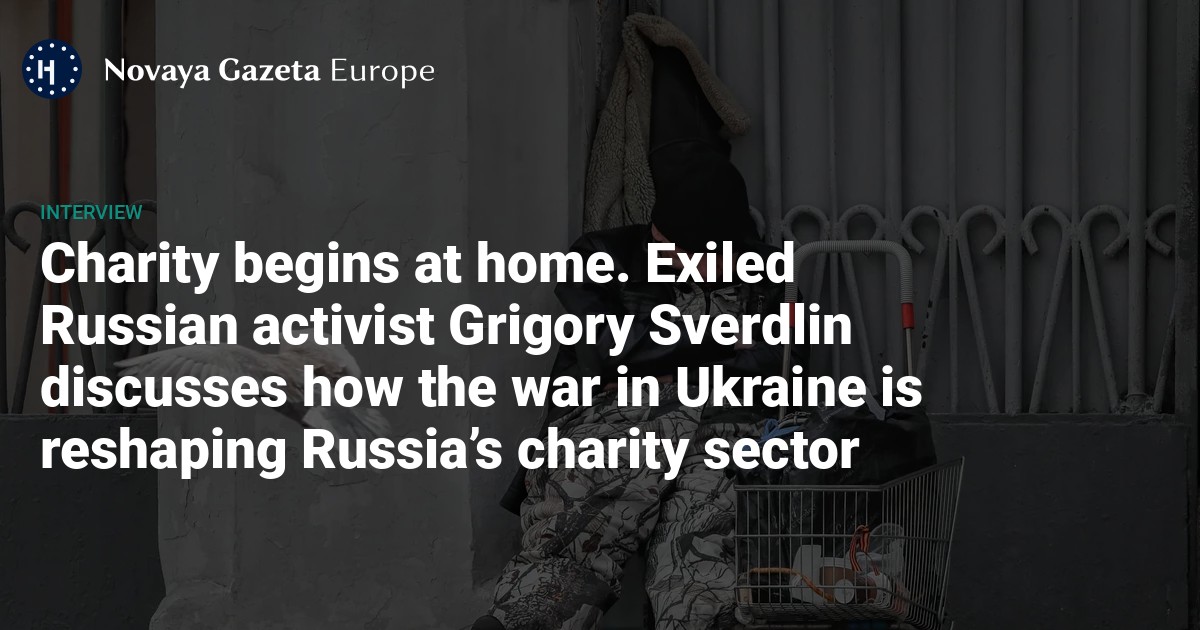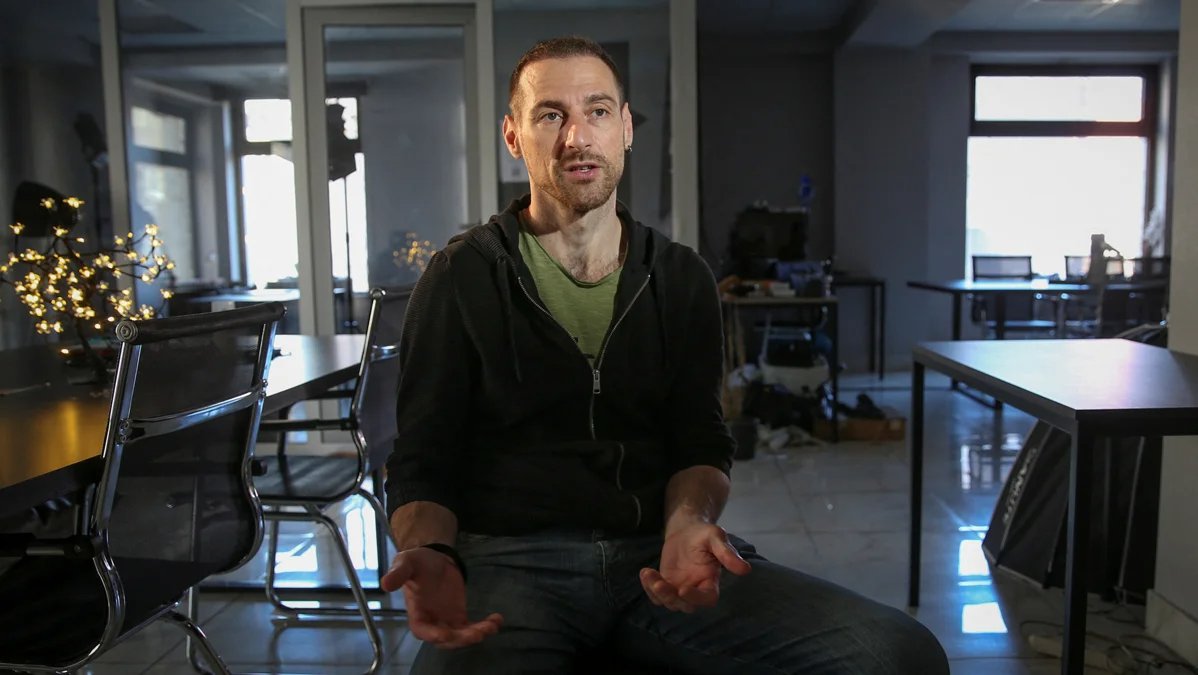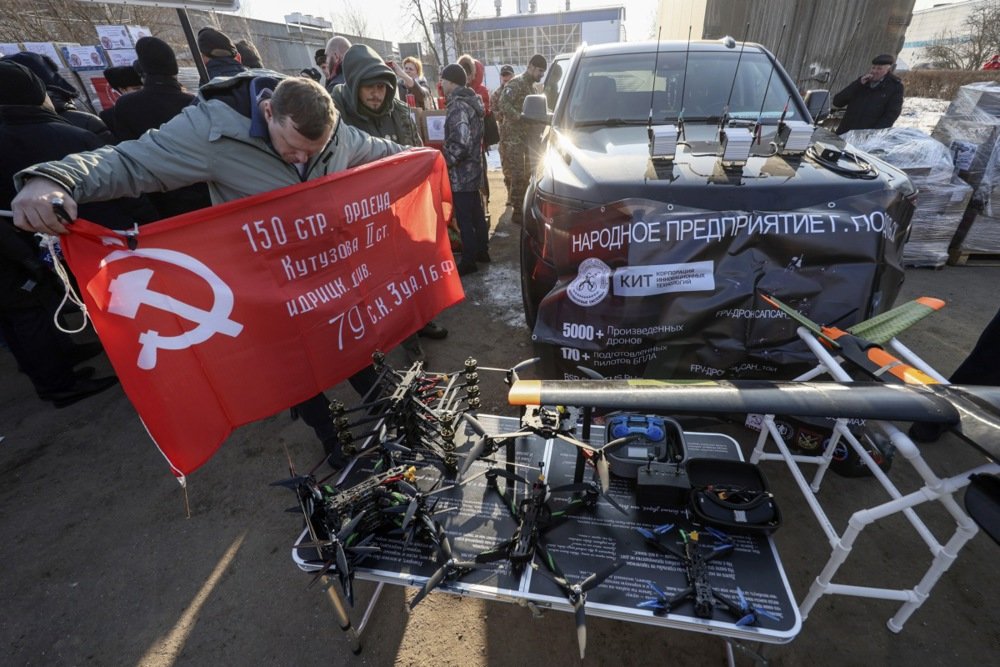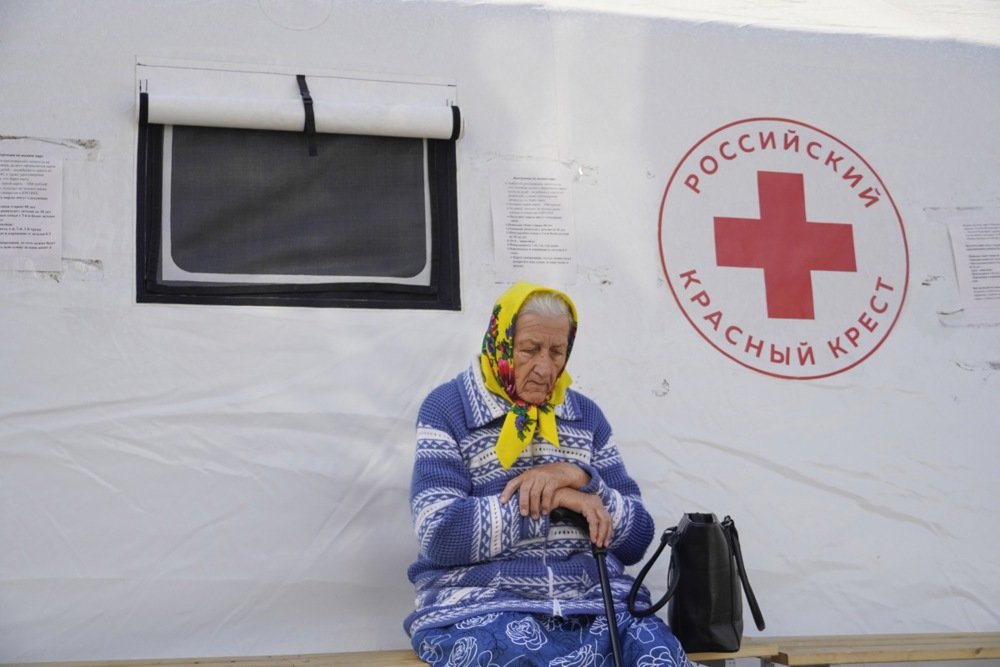



In April, a court in the Russian city of Yekaterinburg, in the Urals, upheld a lawsuit filed by the Justice Ministry to shut down a local charity founded by former mayor Yevgeny Roizman that had provided support to children with serious illnesses such as spinal muscular atrophy.
The dissolution of Roizman’s foundation, which operated for nearly a decade and was entirely funded by public donations, is the latest in a string of closures targeting independent non-profits in Russia, particularly those perceived as politically inconvenient.
Roizman, a prominent opposition figure, had already been designated a “foreign agent” — a legal label increasingly used by the Russian state to discredit and restrict civic activity — and fined for allegedly “discrediting” the Russian army.
In light of intensifying state pressure, Novaya Gazeta Europe spoke with Grigory Sverdlin, one of Russia’s best-known charity leaders, to understand how the war and the crackdown on dissent are reshaping civil society in the country.
Sverdlin, who was forced to leave Russia in 2022 to avoid persecution for his anti-war stance, previously led the homeless support organisation Nochlezhka and now runs Get Lost, a project helping Russians fleeing mobilisation and political persecution.

Grigory Sverdlin. Photo: Irakli Gedenidze / Reuters / Scanpix / LETA
NGE: How has Russia’s war in Ukraine, and the accompanying wave of repression, affected the charity sector?
GS: There are a few major trends. First, based on what my colleagues say, it’s become significantly harder to attract funding from businesses. That’s not surprising. Many foreign companies — particularly Western firms with a tradition of supporting charity — have exited Russia, and they used to be a major source of funding. Companies like Unilever or General Electric often had corporate social responsibility departments with staff specifically tasked with managing charitable donations.
“Ordinary people in Russia continue to give money to charities, and there may even be more of them now than before the war.”
That stream of support hasn’t disappeared entirely — some businesses still help, and I’m grateful to them — but it has shrunk considerably.
What’s more surprising is that donations from individuals have actually gone up. Ordinary people in Russia continue to give money to charities, and there may even be more of them now than before the war.
Three years ago, I wouldn’t have believed that. But here we are — and that’s encouraging.
NGE: Are these individual donors mostly based in Russia, or are they people who’ve left but still want to help?
GS: Most of them are still in Russia. And yes, that’s unexpected. I think it reflects the fact that many people quietly oppose what’s happening. Supporting independent charities is one of the few ways left for them to participate in civil society.
NGE: At the same time, there’s been a surge in patriotic or pro-military volunteering — people raising money to send supplies to Russian soldiers at the front. Are you referring to charities that aren’t involved in that side of things?
GS: Yes, I’m talking specifically about socially focused organisations that provide help to vulnerable groups. My colleagues working inside Russia say that they’ve seen an uptick in individual donations.
Of course, there are plenty of groups that support the military and the war effort, but I don’t have contact with those, so I can’t give any details. Clearly, though, there is a portion of society that supports that work as well.

A Russian Communist Party supporter holds a Soviet-era military flag at a military aid collection point near Moscow, Russia, 26 February 2025. Photo: EPA-EFE/SERGEI ILNITSKY
NGE: Do repressive laws have an impact on foundations that don’t support the state’s official position?
GS: Definitely. When the war and mobilisation began, some of my colleagues left the country altogether. That caused serious disruptions — many organisations lost key staff. Some have recovered, others are still struggling.
The biggest blow was the forced closure of the Nuzhna Pomoshch foundation last year. It had functioned for over a decade as a major fundraising platform, collecting money for hundreds of smaller charities across Russia. Being labelled a “foreign agent” effectively shut it down. It’s a huge loss. I feel deep sadness for the team — it was a wonderful project.
The state is also trying to control the sector more directly. For example, well-known actors or celebrities who were once public ambassadors for certain charities are now pressured to keep their involvement quiet.
NGE: Because of their anti-war views?
GS: It’s because they’ve publicly criticised the war, or simply because they’ve left the country. In some cases, the organisations themselves have asked them to step back, to avoid attracting negative attention. Organisations now remove trustees’ photos from their websites to fly under the radar. It’s depressing, of course.
I don’t judge my colleagues for making those decisions. But I do judge the Russian authorities, who’ve done everything possible to undermine the non-profit sector, especially those groups that try to stay independent and speak for themselves.
NGE: For those unfamiliar with how Russian charities operate — what does state pressure look like in practice?
GS: There are a few main tactics. One is the “foreign agent” label, which brings a host of bureaucratic requirements. You have to submit extensive reports and include a disclaimer on every piece of public communication. The rules are vague and inconsistently enforced — there’s always some minor technicality that can be used to fine or punish you.
It also makes potential donors and partners nervous. Even companies that want to help will often back off: “What if I get in trouble for supporting a foreign agent?” In reality, donating to a foreign agent isn’t illegal, but most people confuse it with the label of an “undesirable organisation” and don’t want to take the risk.
“In March 2022, just after the invasion, 471 charities signed an open letter against the war. Some of those groups had serious issues after signing the letter.”
Then there are frequent audits and inspections — fire safety, tax compliance, whatever they can come up with. In some cases, the economic crimes unit turns up asking whether a charity received “foreign funding”. It’s all tied to the introduction of the “foreign agent” law.
Finally, there’s the funding angle. Some charities rely on local or federal government grants. If they speak out — say, by signing an anti-war letter — they often find themselves excluded from those programmes.
NGE: Do you know of specific cases where that happened?
GS: Yes. In March 2022, just after the invasion, 471 charities signed an open letter against the war. Some of those groups had serious issues after signing the letter. We drafted that letter in the very first days, it was signed by leading Russian charity organisations, including regional ones. And some of the signatories paid a price.
NGE: Have any non-political charities found ways to adapt successfully?
GS: Most of the major charities that were around before the war are still operating today. That’s a testament to the resilience of their staff, their volunteers and their donors.
Human compassion hasn’t disappeared. These organisations are led by talented, dedicated people, and they’re supported by thousands of Russians who are still willing to help. That’s what’s keeping them alive. But I wouldn’t say they’re thriving.
NGE: Are there new groups of people now in need of help?
GS: That’s a good question. To be honest, I don’t have an exact answer, but the war has created entirely new categories of vulnerable people. There are refugees from Ukraine — some of them Russian citizens, others Ukrainian — who’ve ended up in Russia and need support. There are demobilised soldiers, people suffering from PTSD. And, of course, there are people who’ve become homeless — they all need help.

An elderly woman evacuated from the Kursk region amid the Ukrainian incursion into Russia waits to receive aid and medical care from the Russian Red Cross, 10 September 2024. Photo: EPA-EFE/STRINGER
NGE: Is there still any international support for Russian charities?
GS: Very little. The crackdown began in 2012 with the original “foreign agent” law. It started with NGOs, then targeted independent media, and eventually individuals. For years, Russia’s civil society relied on foreign foundations for support — especially in the 1990s and early 2000s. But this support gradually dried up: Russian organisations were too afraid to accept funding from abroad, while foreign foundations preferred to support African or Asian countries, where their assistance felt more welcome.
“Foreign support for Russian charity organisations has virtually disappeared, and the Russian government has done everything in its power to ensure this outcome.”
Now, 11 years later, foreign support for Russian charity organisations has virtually disappeared, and the Russian government has done everything in its power to ensure this outcome.
NGE: So for a charity to survive in Russia today, it either has to align with the state or keep its head down? Is it still possible to stay apolitical?
GS: For now, yes. Some organisations are still managing to stay out of politics — and I really respect them for that. No one is being forced to praise the “special military operation” or swear loyalty to Putin — yet. But the kind of public activism we saw just a few years ago is no longer possible. In 2021, charities signed an open letter demanding that doctors be allowed to treat Alexey Navalny when he was on hunger strike. That kind of collective action is unimaginable today.
You can still stay silent. But you can no longer speak out.
NGE: What worries you most about the current state of Russian charities?
GS: The closure of Nuzhna Pomoshch was devastating. They supported dozens of smaller organisations that now face real hardship. The authorities couldn’t care less. I worry constantly for my colleagues. And I fear that more foundations will be forced to close if the pressure continues.
The Russian government has banned independent media. We were forced to leave our country in order to keep doing our job, telling our readers about what is going on Russia, Ukraine and Europe.
We will continue fighting against warfare and dictatorship. We believe that freedom of speech is the most efficient antidote against tyranny. Support us financially to help us fight for peace and freedom.
By clicking the Support button, you agree to the processing of your personal data.
To cancel a regular donation, please write to [email protected]
VPNovaya
Help Russians and Belarusians Access the Truth
